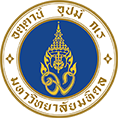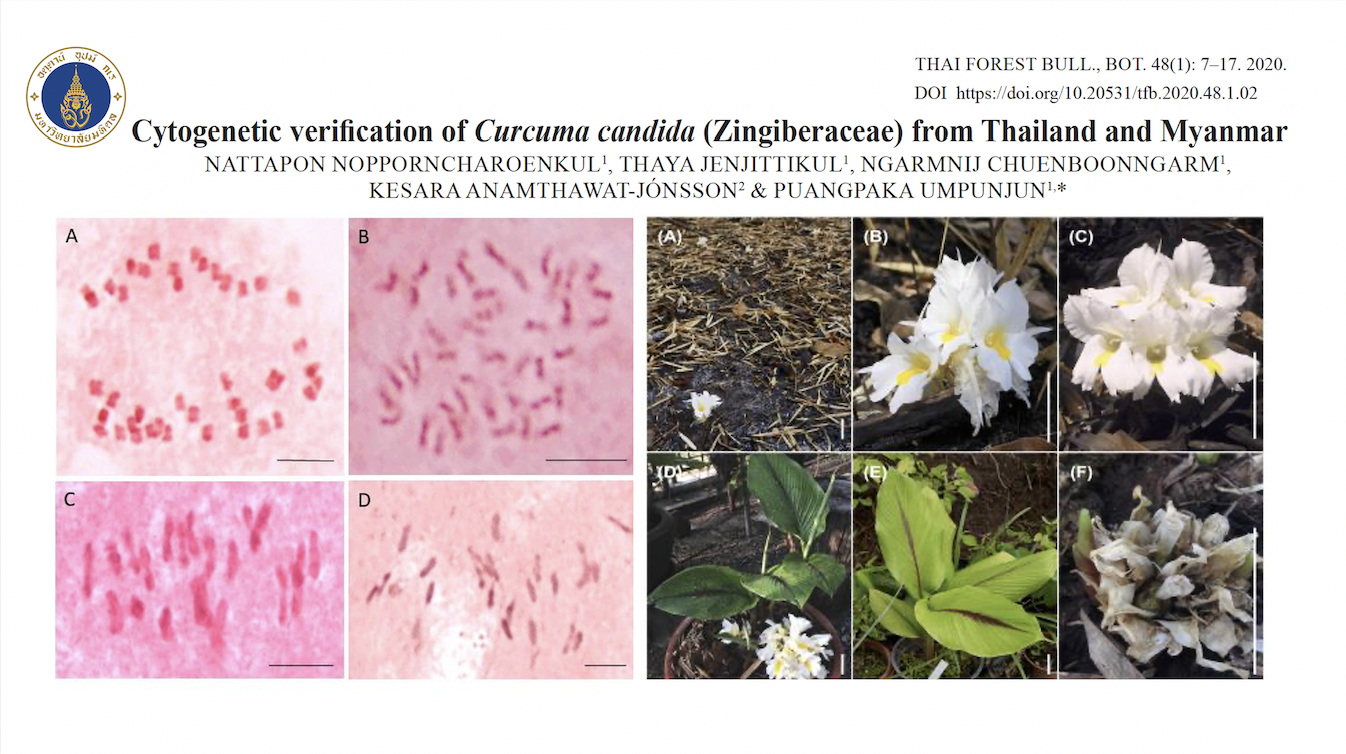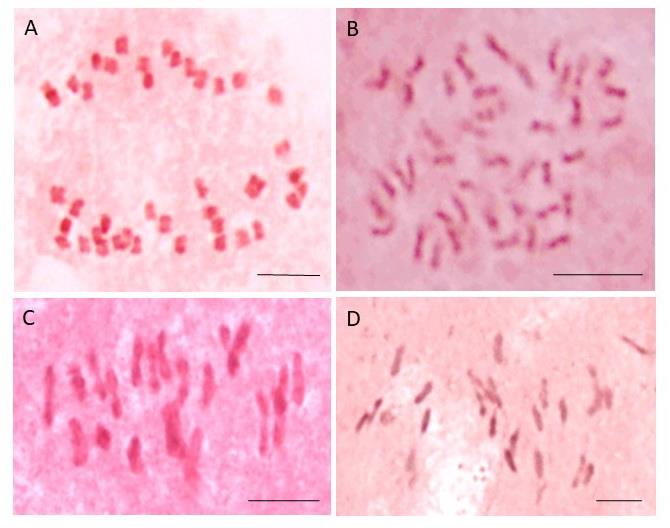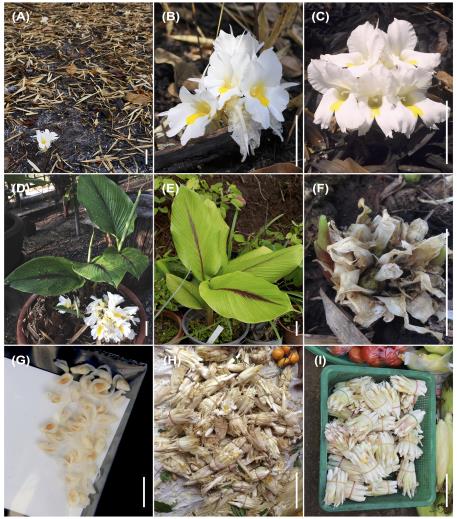Curcuma candida (precocious, Zingiberaceae) is a conservation-vulnerable species, rare and endemic to the Tenasserim Range (Thio Khao Tanaosri: the border of Thailand and Myanmar). This species was initially classified into the genus Kaempferia, based on morphology of specimen from Myanmar, and was given the name K. candida in 1830, but the first specimen from Thailand was only discovered in 2000. With the addition of molecular evidence, the species was transferred to Curcuma.
The cytogenetic study show that this species is also closely similar to those found in diploid Curcuma species (2n = 2x = 42) with regular bivalent pairing of homologous chromosomes. Thus, bio-logically, C. candida has sufficient fertility to be able to distribute and form a large population. But, in reality, the species has little chance of expanding by means of sexual reproduction.
Early in the flowering season (early rainy season) the flowers are collected and removed from natural habitats for consumption and ethno-medicinal usage by local people, hence the flowers are not available for fruit and seed production. Consequently, it is likely that the natural seed supply is drastically reduced which puts this plant at risk on its extinction. The species is only safe in the more remote area, where it is less accessible. During field studies from April 2013 to May 2017, we found that some ecological niches of C. candida were changed to agricultural fields and some populations had disappeared, and many locals had introduced this plant to cultivate domestically. Cytogenetic results, especially those regarding ploidy determination and evaluation of sexual fertility are useful for both in situ and ex situ conservation strategies. The present paper therefore serves as a wake-up call for conservation of C. candida for a sustainable utilization in the near future.
The results are a part of project “Genetic analysis of rare and threatened flowering plants in Thailand and the effect on pollination” which was supported by Center of Excellence on Biodiversity (CEB) and Science Achievement Scholarship of Thailand (SAST) and Erasmus Mundus Scholarship 2015-2017, Mahidol University and University of Iceland and mainly conducted at Department of Plant Science, Faculty of Science, Mahidol University. Associated SDG goals are Zero Hunger (2) Quality Education (4) and Partnerships for the Goals (17).
Reference:
“Cytogenetic verification of Curcuma candida (Zingiberaceae) from Thailand and Myanmar” Nopporncharoenkul, N.; Jenjittikul, T.; Chuenboonngarm, N.; Anamthawat-Jonsson, K.; Umpunjun, P.* THAI FOREST BULL., BOT. 2020, 48(1): 7–17.





